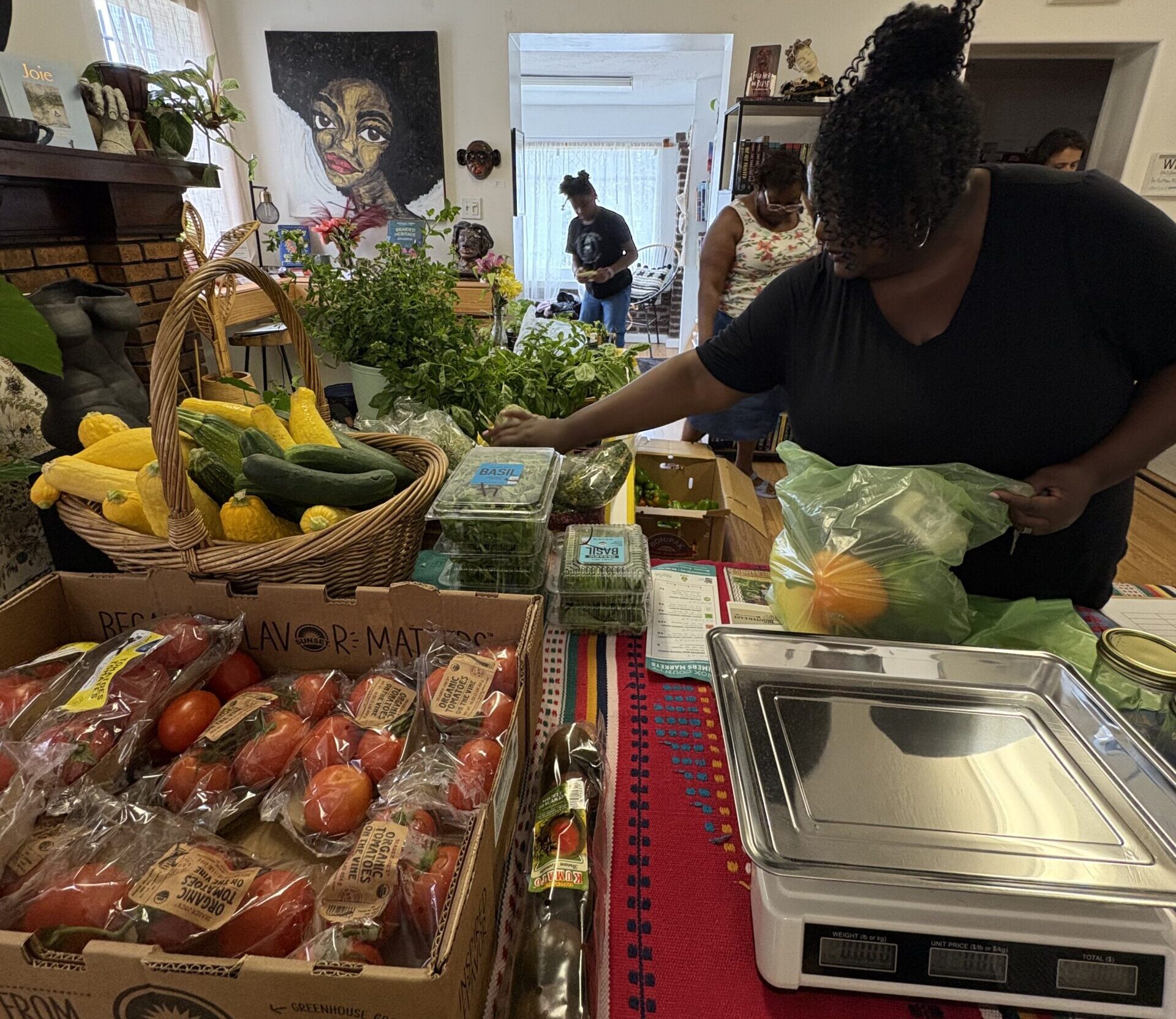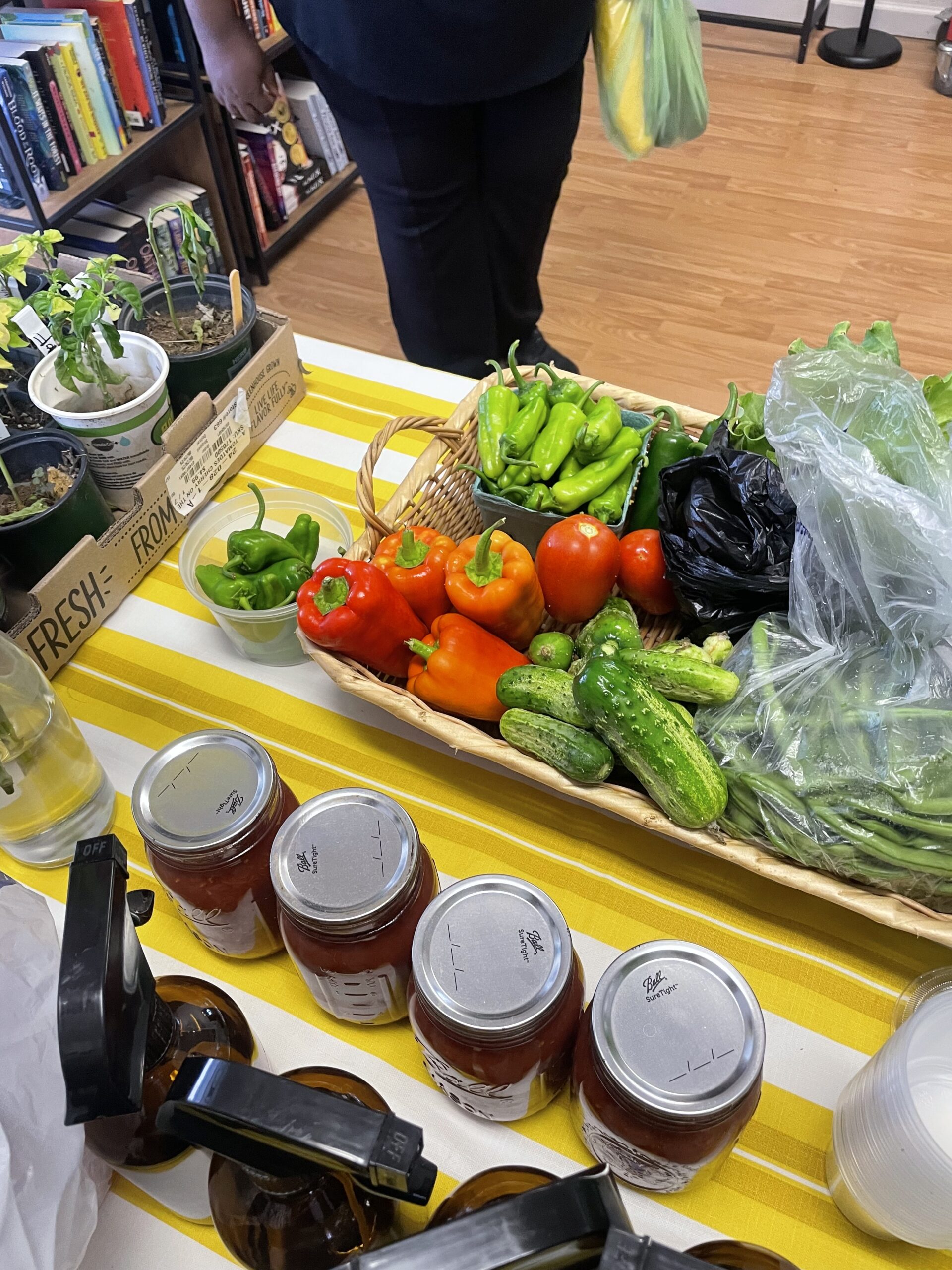Even in the blazing heat of mid-July, our folks came out to trade the abundance from their gardens!
Alongside the bartering that occurs organically amongst our community of growers, we have also been curating space for intentional, money-free bartering and trade for our Home Garden Program participants.
Named the Ujamaa Market in the spirit of the fourth principle of Kwanzaa—’cooperative economics’—these monthly markets are held during the peak harvest season from May through November.
Community resilience is built by developing sustenance and sovereignty around basic needs and connection with one another!
🔨How it works:
- Home Gardeners receive their garden bed, growing materials, free education, and individualized support from Rooted East.
- Food grown in home gardens that is not eaten by the gardener and/or their family and friends gets brought to the market to trade with other growers!
- The long-term aim is a coordinated growing system where each family intentionally grows an abundance of a certain crop that they select in advance of the growing season. This abundance would be traded at the Ujamaa Markets!
- We are launching a second phase of our Home Garden Program where a portion of our participants were selected based on their level of engagement with our program to have their growing space expanded. The hope is that increased growing space means more abundance and excess food circulating within the community!
🫶A Collaborative Vision
This market was planned out by community through a series of collaborative visioning sessions about what folks wanted to see out of a community-based & community-led food system in East Knoxville. We owe all of the success of this project to our participants who are doing this work alongside our core team
This year of Ujamaa Market pilots is in collaboration with our friends at The Bottom—a local Black-led bookstore + community space in the heart of East Knoxville! We have chosen to host these markets at The Bottom due to its accessibility to most of our participants (even those without transportation), our close community partnership, and for its cultural familiarity for many folks in the area.
Written by Laila Malik, Rooted East Operations Lead







Leave A Comment